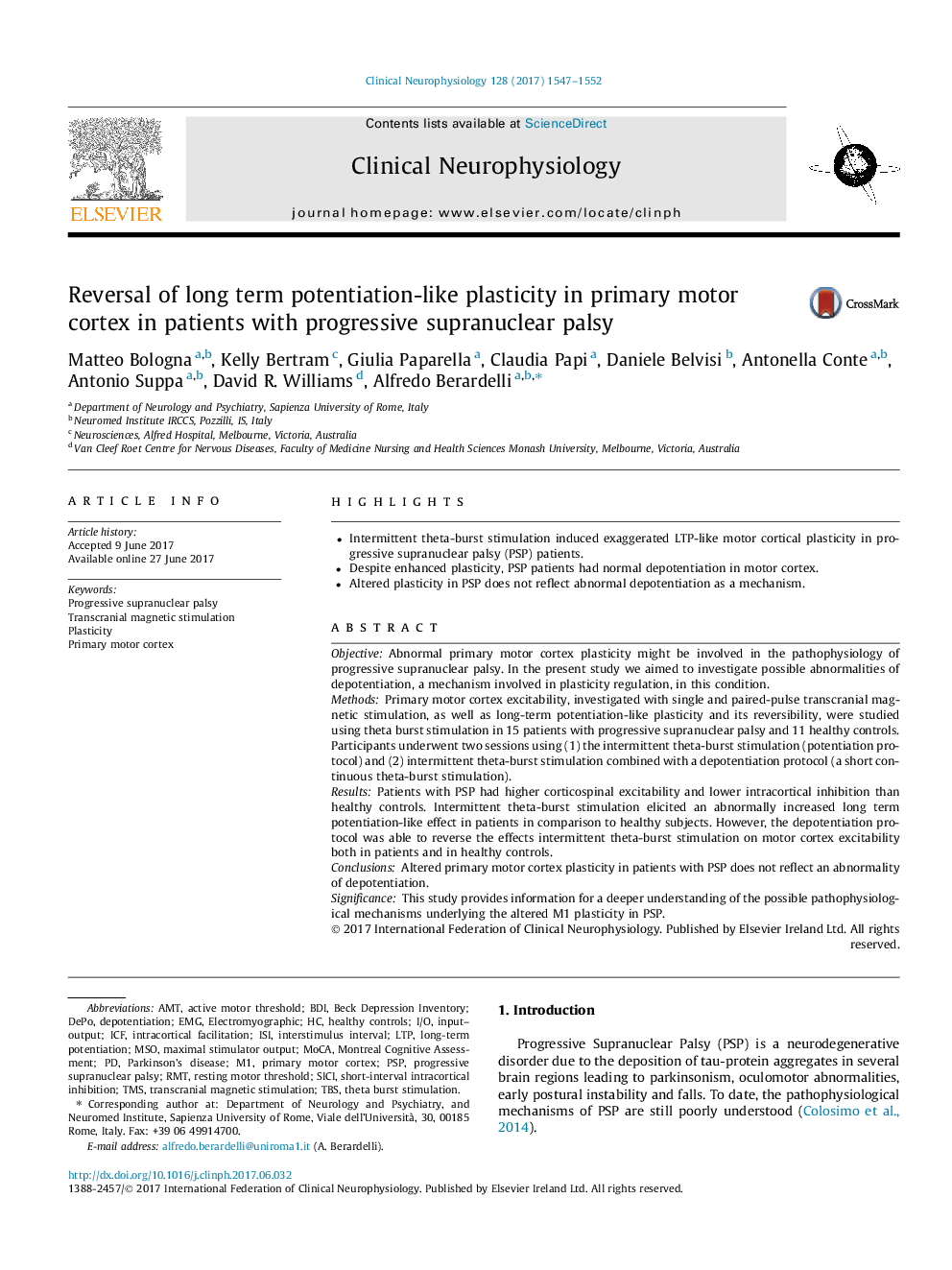| کد مقاله | کد نشریه | سال انتشار | مقاله انگلیسی | نسخه تمام متن |
|---|---|---|---|---|
| 5627241 | 1406345 | 2017 | 6 صفحه PDF | دانلود رایگان |
- Intermittent theta-burst stimulation induced exaggerated LTP-like motor cortical plasticity in progressive supranuclear palsy (PSP) patients.
- Despite enhanced plasticity, PSP patients had normal depotentiation in motor cortex.
- Altered plasticity in PSP does not reflect abnormal depotentiation as a mechanism.
ObjectiveAbnormal primary motor cortex plasticity might be involved in the pathophysiology of progressive supranuclear palsy. In the present study we aimed to investigate possible abnormalities of depotentiation, a mechanism involved in plasticity regulation, in this condition.MethodsPrimary motor cortex excitability, investigated with single and paired-pulse transcranial magnetic stimulation, as well as long-term potentiation-like plasticity and its reversibility, were studied using theta burst stimulation in 15 patients with progressive supranuclear palsy and 11 healthy controls. Participants underwent two sessions using (1) the intermittent theta-burst stimulation (potentiation protocol) and (2) intermittent theta-burst stimulation combined with a depotentiation protocol (a short continuous theta-burst stimulation).ResultsPatients with PSP had higher corticospinal excitability and lower intracortical inhibition than healthy controls. Intermittent theta-burst stimulation elicited an abnormally increased long term potentiation-like effect in patients in comparison to healthy subjects. However, the depotentiation protocol was able to reverse the effects intermittent theta-burst stimulation on motor cortex excitability both in patients and in healthy controls.ConclusionsAltered primary motor cortex plasticity in patients with PSP does not reflect an abnormality of depotentiation.SignificanceThis study provides information for a deeper understanding of the possible pathophysiological mechanisms underlying the altered M1 plasticity in PSP.
Journal: Clinical Neurophysiology - Volume 128, Issue 9, September 2017, Pages 1547-1552
